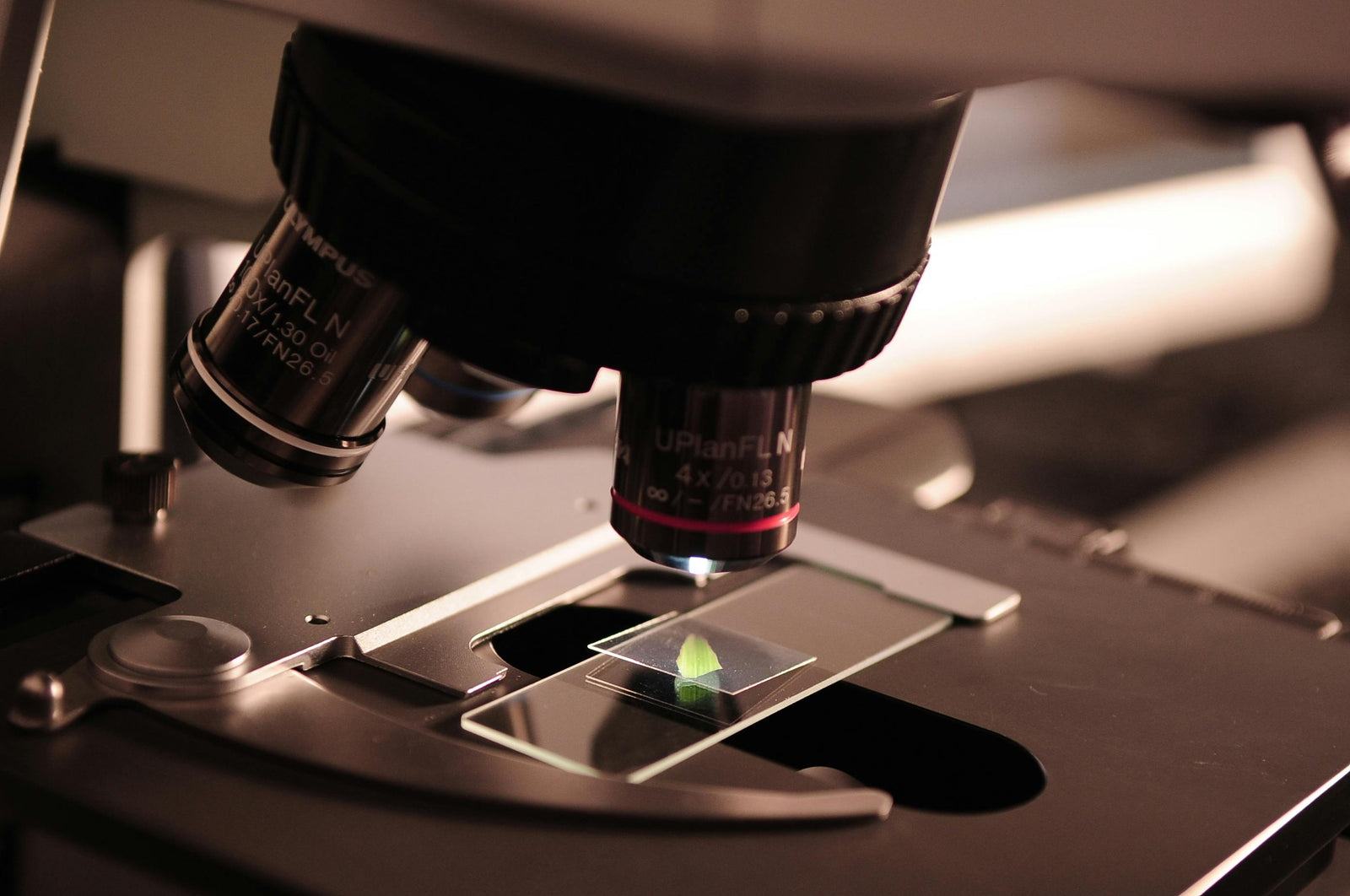Your Cart is Empty

June 05, 2024 6 min read
Take our quiz and find which supplements your body is craving.

Many experts will agree that achieving a balance in nutrition is the key to optimal health. However, certain dietary preferences might eliminate key elements completely, creating room for deficiencies. Luckily, in today’s world of modern nutrition, we no longer have to rely strictly on food to obtain essential nutrients. In fact, supplementation seems to be the answer, even when we can access a certain amount of the nutrient in dietary sources.
Quality supplementation is the bridge that grants us the ability to acquire the necessary amount of important nutrients, even when an entire food group is eliminated. While meat undoubtedly is the primary source of creatine, that doesn’t mean that vegetarians or vegans are doomed to stay deprived of its powerful benefits. Let’s see why creatine deserves a spot in your trusty supplement stack and what benefits it holds for plant-based diets.
Since creatine is mostly obtained from animal products, vegans and vegetarians may find themselves deficient.[1] Now, you may wonder, is it that big of a deal? While it is mostly marketed from a sports nutrition position, creatine is much more than just a supplement to enhance your resistance training experience.
Creatine consists of three amino acids and is a compound naturally produced in the body and obtained from red meat and seafood. This organic acid supplies cells with energy and is primarily found in muscle cells—hence its predominant role in building muscle mass.
A study focused on vegetarian eating habits found that a diet excluding animal products results in a substantial decrease in total stored creatine levels.[3] Luckily, the same study concluded that oral creatine supplementation can compensate for the lack of natural creatine stores.
That being said, the kidneys, liver, and pancreas can only produce as much as one gram of creatine per day, which simply isn’t enough to experience its scientifically proven benefits in full effect.[2] Therefore, you’ll find that even meat eaters supplement with creatine, and not just to promote anaerobic performance.
A supplement both professional and recreational athletes swear by, creatine is the holy grail for optimal physical performance. It is, however, full of surprises, as taking creatine can improve many more aspects of health and overall well-being in significant ways.

The most talked-about effect of creatine supplementation is enhanced lean tissue mass, especially when paired with strength training. Creatine is mostly found in skeletal muscles and is a well-known tool for hypertrophy, i.e., building muscle. Supplementing with creatine triggers anabolic processes and supports protein synthesis, which is key to increasing muscle mass.[4] As a result, it’s a staple in the diet of both vegan and vegetarian athletes.
Creatine also plays an important role in the management of muscle disorders. By increasing muscle strength, oral creatine supplementation can aid muscle recovery and improve functional performance in muscular dystrophy cases.[9]
Speaking of vegetarian and vegan athletes, switching to a plant-based diet can result in a significant drop in exercise performance, as well as body composition. Taking a supplement to increase creatine stores has been shown to enhance performance - not only by increasing muscle mass but also by promoting energy levels. Supplementing with creatine is particularly beneficial in maximal-intensity, short-duration resistance training.[5]
Positive effects of creatine on strength performance have been noted after only 12 weeks of consistent supplementation, including a 7-day loading period to increase creatine stores (25 g/day), followed by a maintenance period (5g/day). This study also suggested that creatine, in combination with high-intensity exercise, boosted fat-free mass and performance markers.[6]
Glycogen, the primary source of energy the body uses when exercising, is accumulated in the muscles and liver. Pairing creatine supplementation with high-carb diets has been found to promote glycogen levels, providing the body with much-needed energy supplies, especially in the case of high-intensity resistance training.[6]
This is perhaps the least-advertised benefit of creatine supplementation: whether on an omnivore, vegan, or vegetarian diet, creatine plays a vital role in cognitive function. As we’ve mentioned, prioritizing plant-based foods in your nutrition is linked to low creatine levels, which may also impact brain performance.[3]
Creatine has a powerful influence on overall cognitive function, communication, self-care, and behavioral patterns. Its neuroprotective properties make it an important factor in conditions such as depression and Alzheimer’s disease.[7]

By promoting lean muscle growth, creatine simultaneously suppresses body fat and facilitates healthy weight loss. A meta-analysis conducted in 2019 showed that in combination with resistance training, oral creatine administration may decrease body fat through energy expenditure, metabolism, and fat bioenergetics regulation.[8]
Collagen, the most abundant bodily protein, is yet another concern regarding vegan and vegetarian diets, as it is mostly consumed via animal products. Many experts describe collagen as the glue that holds the body together, and it is pivotal in the structure of muscles, bones, connective tissue, and skin.
However, multiple methods exist for promoting natural collagen production, one of which is increasing creatine levels. Creatine supplementation has been found to stimulate the production of collagen type I in the body, the most plentiful form found in skin, tendons, ligaments, and bones.[10]
A lack of animal-derived protein in your diet shouldn’t harm your skin. Since collagen represents the alpha and omega of a youthful, plump, healthy complexion, creatine consequently plays an impactful role in graceful aging by promoting its natural synthesis.
Furthermore, creatine acts as an antioxidant and has the ability to promote energy supplies in the dermis. Creatine can shield the skin against UV and oxidative damage on a cellular level, preserving its structure and lowering the risk of premature aging.[11] As an energy supplier, creatine recharges the skin cells, protecting the skin against numerous cellular stress conditions and ultimately, skin damage.[12]
Creatine represents a go-to solution for recovery, whether after a grueling workout or an exercise-induced muscle injury. Supplementing with creatine can shorten recovery time by aiding in muscle damage repair and accelerating the recovery of force-production potential, a 2021 study finds.[13]
Vegan and vegetarian diets offer a plethora of health benefits that can’t be denied. However, every diet regime carries a certain amount of risk, especially if an entire food group is excluded. While the absence of meat-derived products is essentially perceived as one of the leading benefits of plant-based diets, it is also one of the major downsides - especially when concerning potential nutritional deficiencies.
Creatine is almost exclusively available through animal products, and it’s simply too valuable to be neglected. This is where creatine supplementation comes into play - a praised source of creatine that even meat eaters rely on! Creatine HCI isn’t just muscle food; it is a potent brain-supporting, recovery-enhancing, skin-loving supplement that deserves all the attention it gets, both within and beyond the realms of sports nutrition.

January 21, 2025 8 min read
Strength training is one of the most effective ways to combat sarcopenia and enhance longevity. By preserving muscle mass and improving mobility, metabolic health, and cognitive function, weight training helps promote a longer, healthier life. Learn how to integrate strength training into your routine to build a stronger foundation for the future. Discover all-natural supplements such as vitamin D, omega-3, and creatine to boost your performance and support lean muscle growth and bone health.

January 13, 2025 8 min read
Green workouts are an eco-friendly approach to fitness that enhances both mental and physical health. This guide explores how outdoor exercise and nature’s benefits can boost your well-being while supporting sustainability. Discover how easy it is to integrate green exercise into your routine, whether in the city or countryside.

January 13, 2025 6 min read
Explore the future of skincare where traditional remedies and modern nanotechnology converge. Green nanotech enhances the effectiveness of plant-based compounds, offering safer, eco-friendly, and powerful solutions for various skin conditions. Learn how this synergy is revolutionizing dermatology and cosmeceuticals.